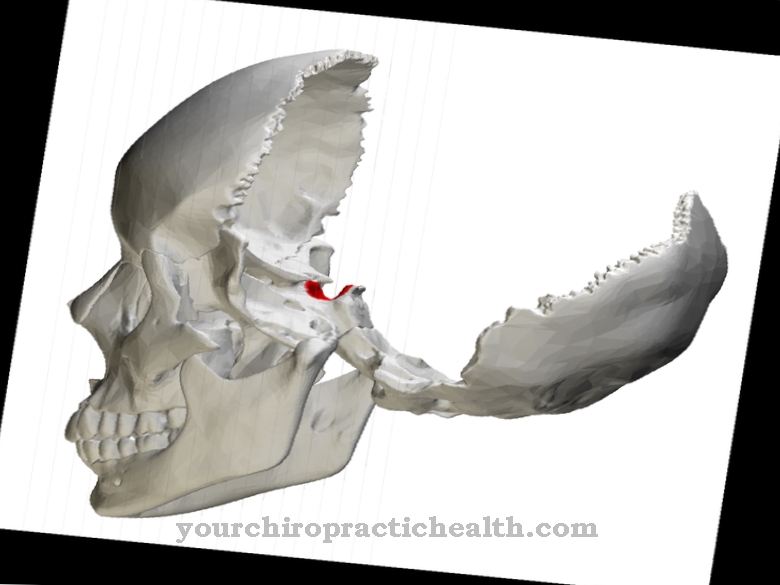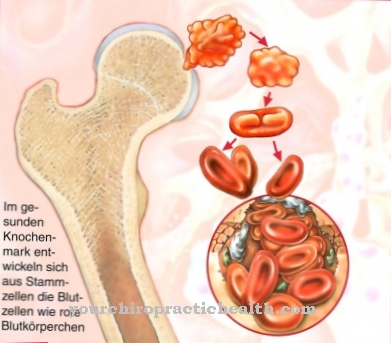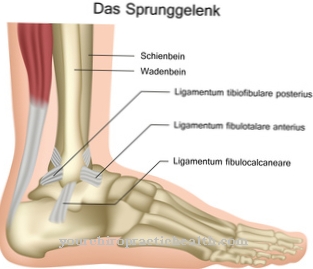For some clinical pictures, compliance with bed rest indispensable as a medical measure. However, it is nowadays that bed rest should be arranged for as long as necessary but as short as possible.
What is bed rest in medicine

The bed rest is defined in medicine as maintaining a lying position in bed not just at bedtime, but for a whole day or even for several days.
A distinction is made between strict bed rest, in which the patient is not allowed to get up at all, has to wash or is washed in bed and has to use the bed bowl instead of going to the toilet, and restricted bed rest, in which short standing up is permitted under supervision.
Since strict bed rest brings health disadvantages with it, today's medicine focuses on mobilizing and rehabilitating the sick as early as possible and bed rest is only ordered and kept as short as possible if there are clear indications.
Sense and purpose of bed rest for illness and recovery
The bed rest is not only prescribed for seriously ill patients who are referred to as bedridden when they cannot help but lie in bed, but also for certain indications in which getting up would prevent recovery.
These indications include, for example, the condition immediately after a heart attack, severe heart failure, pulmonary embolism or in the event of an extensive thrombosis, state of shock, ventilation, unserved fracture of the femoral neck or other bones of the lower extremities, unstable fractures of the vertebral bodies or pronounced risk of falling.
Strict bed rest must also be observed during dialysis. In addition, pregnant women are prescribed more or less strict bed rest if there is a risk of premature birth due to a weakness of the cervix or in the case of twin or multiple pregnancies, if vaginal bleeding, miscarriage, premature birth or stillbirths in the medical history of the pregnant woman, a malposition or adhesions the placenta, if the development of the fetus is delayed or if the pregnant woman suffers from preeclampsia, i.e. pregnancy high blood pressure combined with proteinuria, which means increased protein excretion in the urine.
Diseases that are accompanied by - possibly high - fever, such as pneumonia, acute bronchitis, bladder or kidney inflammation and flu, are no longer treated in modern medicine with longer bed rest in conjunction with medication, but bed rest is kept as short as possible and offers patients with poor circulation help to stand up and encourages them to move slightly. Longer bed rest would lead to further health problems.
You can find your medication here
➔ Medicines against fatigue and weaknessRisks & side effects
Over a long period of time bed rest Numerous processes take place in the human body that severely impair the general state of health and even pose acute dangers. Oxygen uptake is reduced when there is insufficient exercise, and this reduced ventilation of the lungs can lead to pneumonia.
The stroke volume of the heart is also decreased, while blood pressure tends to increase. The number of red blood cells decreases, the concentration of blood lipids increases and the blood's ability to clot changes. This increases the risk of thrombosis. The muscles are broken down, fatty substance is built up and the strength of the external bone substance decreases due to the loss of calcium. Blood sugar can no longer be used well enough and - temporary - diabetes can be the result.
Hearing can also deteriorate, memory and sleep disorders can occur. Often the sense of taste also suffers. With permanent bed rest, there is a risk of bedsores in the tail area, the so-called decubitus. After prolonged bed rest, patients have to struggle with muscle and circulatory weakness when mobilization begins again. The psychological aspects should not be neglected either, because a patient who is prescribed strict bed rest will feel sicker than a patient who is allowed to get up at least temporarily.
For all these reasons, it is nowadays very carefully weighed whether the disadvantages of longer bed rest are outweighed by the benefits that bed rest offers in the respective case, and although rest and protection is of course necessary for many diseases, bed rest is the only way to go long as absolutely necessary and kept as short as possible.

























.jpg)

.jpg)
